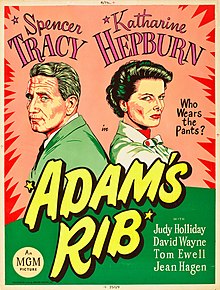When Kay Banks (Elizabeth Taylor) informs her doting parents Stanley (Spencer Tracy) and Ellie (Joan Bennett) that she is engaged to be married, all hell breaks loose as Stanley tries to deal with the loss of his daughter to a husband he barely knows, and to the escalating wedding arrangements that Ellie is planning. It's not easy to be the Father of the Bride (1950).
Spencer Tracy is perfect as the indulgent daddy forced to confront his daughter's big step into adulthood. He's warm and loving and completely flummoxed by his wife's obsession with a fancy wedding party. Though director Vincente Minnelli wanted Mr. Tracy from the start, Dore Schary agreed to let Jack Benny (who badly wanted the part) to star. Mr. Minnelli insisted on a screen test; he found he could not get Mr. Benny to refrain from doing his famed double takes. Finally permitted to ask Mr. Tracy, Mr. Minnelli was turned down - Mr. Tracy wasn't interested in being second choice. When Mr. Minnelli told him that he would turn down the directing work if Mr. Tracy was not in the film (and Katharine Hepburn interceded), Mr. Tracy agreed to take on the part (TCM article).
Joan Bennett is lovely as Ellie Banks. A loving mother and wife, she's completely absorbed in the ideal of a fancy church wedding for her only daughter - something she missed when she got married. She had already worked previously with Spencer Tracy, and he was happy to work with her again. Mr. Tracy said obviously their marriage in Me and My Gal (1932) had worked and look at the offspring they produced!
Which brings us to the eldest of that offspring - Elizabeth Taylor is a delight as Kay Banks. Torn between pleasing her mother and her own desire for a smaller affair, Kay embraces the fancier reception, while trying to calm her panicked father. Ms. Taylor was on the verge of marrying Nicky Hilton, and MGM was ecstatic at using Ms. Taylor's real wedding to publicize the film. Besides stocking the wedding with every MGM star available to attend, the wedding was timed to coincide with the film's release (South Florida Sun-Sentinal); sadly, the marriage was over in less than a year, thanks to Hilton's drinking and womanizing.

The film opened at Radio City Music Hall and received a glowing review from Bosley Crowther in his New York Times review. Before the film has even opened, a sequel, Father's Little Dividend (1951) was put into production (AFI Catalog). In 1991, a remake with Steve Martin, which was also very successful, was released. The film had previously been a TV series with Leon Ames as the titular character.






























